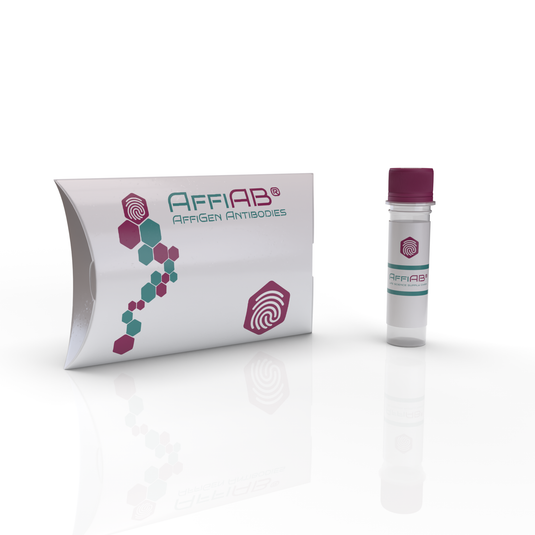This AffiAB® Goat Anti-Rab4 Polyclonal IgG Antibody is an ideal choice if you're looking for a high-quality polyclonal antibody to target Rab4 in your research applications. It is produced from immunized albino goat plasma. It is of the highest purity, is pre-adsorbed to minimize potential for non-specific binding and validation data is readily available.
The AffiAB® Goat Anti-Rab4 Polyclonal IgG Antibody is an antibody that specifically targets and binds to the Rab4 protein. Rab4 is a small GTPase protein belonging to the Rab family, which plays a key role in regulating intracellular vesicular trafficking and recycling.
This polyclonal antibody is produced by immunizing goats with purified Rab4 protein or a specific peptide derived from Rab4. The resulting antibodies are then purified from goat serum to ensure high specificity and quality.
The AffiAB® Goat Anti-Rab4 Polyclonal IgG Antibody is widely used in research studies to investigate the expression, localization, and function of Rab4 in various cellular processes. By specifically detecting and visualizing Rab4, researchers can gain insights into its involvement in endocytic recycling, membrane trafficking, and receptor internalization.
Researchers employ techniques such as immunoblotting, immunofluorescence, immunohistochemistry, and immunoprecipitation with this antibody to analyze Rab4 protein expression, subcellular localization, and interactions with other proteins or cellular components.
It is important to note that the AffiAB® Goat Anti-Rab4 Polyclonal IgG Antibody is specifically designed to recognize Rab4 and may not cross-react with other Rab proteins or related molecules. Researchers should validate the antibody's performance and specificity in their specific experimental conditions by conducting appropriate controls and assays.
In summary, the AffiAB® Goat Anti-Rab4 Polyclonal IgG Antibody is a valuable tool for studying the expression, localization, and function of Rab4 in various cellular processes. By specifically detecting Rab4, researchers can advance our understanding of intracellular vesicular trafficking and recycling, contributing to fields such as cell biology and molecular biology.

